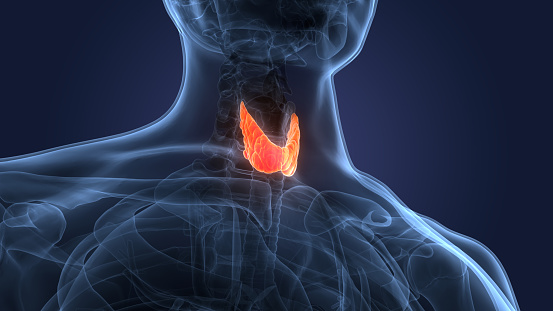The gland in the neck

Testing testing 123!
Antibodies are also really important to test for because they indicate something is attacking the thyroid and is associated with overall prognosis. There are two main antibodies, anti-TPO and thyroglobulin antibodies. Some people will have one and not the other, but anti-TPO is the most common one. However, I have caught hypothyroidism that was only anti-thyroglobulin positive so it’s important in some cases to run both. To make matters even more frustrating, 20-30% of people who have active hypothyroidism won’t have any antibodies in their lab work because those immune cells haven’t made it out of their thyroid (yet). It’s in cases like these that a thyroid gland ultrasound is useful. These centres of autoimmune attack will show up on ultrasound imaging.

Thyroid dysfunction can be hard to pinpoint




